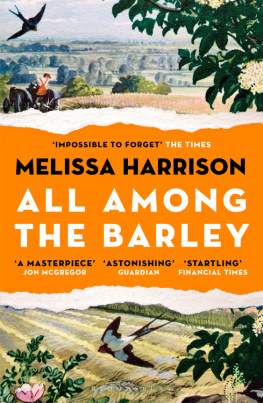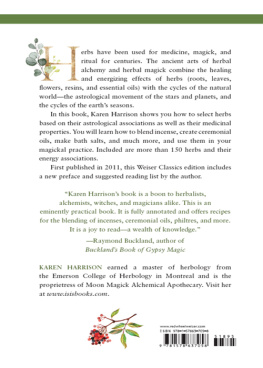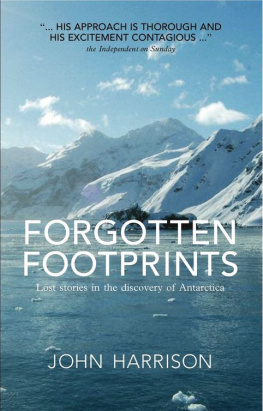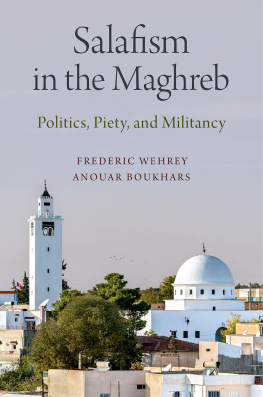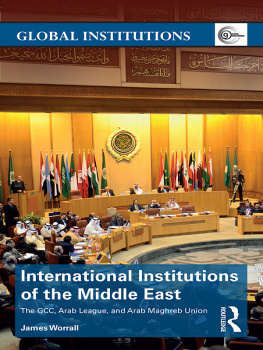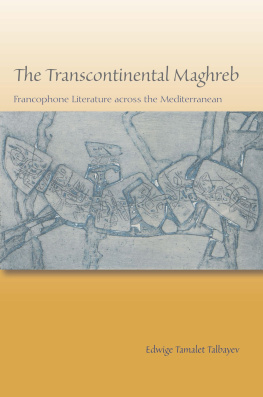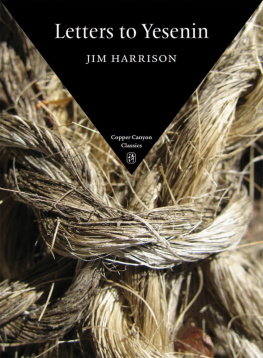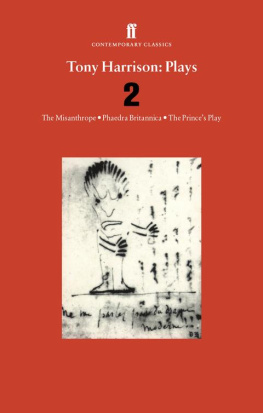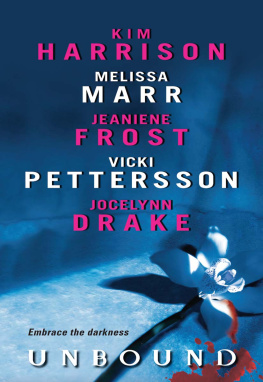Harrison - Transcolonial Maghreb
Here you can read online Harrison - Transcolonial Maghreb full text of the book (entire story) in english for free. Download pdf and epub, get meaning, cover and reviews about this ebook. year: 2015, publisher: Stanford University Press, genre: Home and family. Description of the work, (preface) as well as reviews are available. Best literature library LitArk.com created for fans of good reading and offers a wide selection of genres:
Romance novel
Science fiction
Adventure
Detective
Science
History
Home and family
Prose
Art
Politics
Computer
Non-fiction
Religion
Business
Children
Humor
Choose a favorite category and find really read worthwhile books. Enjoy immersion in the world of imagination, feel the emotions of the characters or learn something new for yourself, make an fascinating discovery.

- Book:Transcolonial Maghreb
- Author:
- Publisher:Stanford University Press
- Genre:
- Year:2015
- Rating:4 / 5
- Favourites:Add to favourites
- Your mark:
- 80
- 1
- 2
- 3
- 4
- 5
Transcolonial Maghreb: summary, description and annotation
We offer to read an annotation, description, summary or preface (depends on what the author of the book "Transcolonial Maghreb" wrote himself). If you haven't found the necessary information about the book — write in the comments, we will try to find it.
Transcolonial Maghreb — read online for free the complete book (whole text) full work
Below is the text of the book, divided by pages. System saving the place of the last page read, allows you to conveniently read the book "Transcolonial Maghreb" online for free, without having to search again every time where you left off. Put a bookmark, and you can go to the page where you finished reading at any time.
Font size:
Interval:
Bookmark:
Cultural Memory in the Present
Hent de Vries, Editor
TRANSCOLONIAL MAGHREB
Imagining Palestine in the Era of Decolonization
Olivia C. Harrison
STANFORD UNIVERSITY PRESS
STANFORD, CALIFORNIA
Stanford University Press
Stanford, California
2016 by the Board of Trustees of the Leland Stanford Junior University.
All rights reserved.
Parts of originally appeared as Cross-Colonial Poetics: Souffles-Anfas and the Figure of Palestine in PMLA 128.2 (March 2013): 35369, published by the Modern Language Association of America. Reprinted by permission.
Parts of
No part of this book may be reproduced or transmitted in any form or by any means, electronic or mechanical, including photocopying and recording, or in any information storage or retrieval system without the prior written permission of Stanford University Press.
Printed in the United States of America on acid-free, archival-quality paper
Library of Congress Cataloging-in-Publication Data
Harrison, Olivia C., 1980- author.
Transcolonial Maghreb : imagining Palestine in the era of decolonization / Olivia C. Harrison.
pages cm(Cultural memory in the present)
Includes bibliographical references and index.
ISBN 978-0-8047-9421-3 (cloth : alk. paper)
ISBN 978-0-8047-9685-9 (eBook)
1. North African literature20th centuryHistory and criticism. 2. Arab-Israeli conflictLiterature and the conflict. 3. PalestineIn literature. 4. Colonies in literature. I. Title. II. Series: Cultural memory in the present.
PN849.A355H37 2015
809'.933585694dc23
2015026356
Typeset by Bruce Lundquist in 11 /13.5 Adobe Garamond
in memory of James Pinckney Harrison (19322010)
to Arne, Ada, and Louise, for life
Contents
Illustrations
Acknowledgments
Columbia Universitys Department of French and Romance Philology and the Center (now Institute) for Comparative Literature and Society were an ideal intellectual haven for the genesis of this project. My first thanks go to Madeleine Dobie, whose infallible support, generous engagement, and copious comments on innumerable chapter drafts were instrumental in making this book a reality. Gil Anidjar had a decisive impact on the final shape the project has taken, and I am endlessly grateful for his incisive readings and intellectual example. Noha Radwan provided much needed guidance with the Arabic corpus, and rightly insisted that I include Ahlam Mosteghanemi in the final draft of the book. The much regretted Philip Watts was a belated but essential interlocutor for this project and the next, as was Kristen Ross. It is thanks to them both that Transcolonial Maghreb will, I hope, have a French sequel.
My years at Columbia would not have been nearly as rewarding without the example, support, and camaraderie of many individuals I would like to acknowledge here, though I cannot possibly name them all: Bashir Abu-Manneh, Seth Anziska, tienne Balibar, Taoufik Ben Amor, Maria Boletsi, Peter Connor, Hamid Dabashi, Patricia Dailey, Vincent Debaene, Souleymane Bashir Diagne, Brent Edwards, Avishek Ganguly, Alysia Garrison, Stathis Gourgouris, Zeina Hakim, Alvan Ikoku, Simon Jackson, Mehammed Mack, Marc Nichanian, Neni Panourgia, Bruce Robbins, Emmanuelle Saada, Gayatri Spivak, Mathew Udkovitch, and Ali Wick. Though I did not arrive in time to meet Edward Said, this book is deeply indebted to his work. UCLAs departments of French and Francophone Studies and Comparative Literature offered me visiting scholar status during my first year in Los Angeles, and I thank Dominic Thomas and Ali Behdad for their academic hospitality. Meeting Gil Hochberg, Lia Brozgal, Aamir Mufti, Nouri Gana, Susan Slyomovics, and Franoise Lionnet during that formative year was crucial. I am especially grateful to Franoise for her continued mentorship.
At the University of Southern California I have found an incredibly stimulating and collegial intellectual community. Natania Meeker and Panivong Norindr have been exemplary mentors from the start, and I feel very fortunate to count them as my close colleagues and friends. Ramzi Rouighi, Laurie Brand, Sarah Gualtieri, and Kevin van Bladel gave me a very warm welcome to the Middle East Studies Program as soon as I arrived on campus. I am especially grateful to Ramzi for entertaining my nostalgia for Columbia, and to Laurie for inviting me to present my work at the MESP faculty seminar. My research assistant, Nada Ayad, provided invaluable help with my Arabic corpus. I have been very fortunate to work with Nada as well as Sophia Azeb and Umayyah Cable, whose dissertation projects have helped me think through my own research. Last but not least, the interdepartmental postcolonial reading group my colleague Neetu Khanna launched in 2012 has been an ideal venue to discuss new work, and I am grateful to all its participants for their helpful feedback. I am especially indebted to Neetu for reading numerous drafts as well as the final version of this book, which very much bears the imprint of her careful scrutiny. More rewarding still has been her unflagging camaraderie and sense of humor. USCs Zumberge Award and the Office of the Dean of USC Dornsife, as well as numerous course releases and a luxurious junior leave, were instrumental in creating the conditions for the completion of this work.
Parts of this book have been presented at many venues over the years and I am indebted to the many people who engaged with it on those occasions, some of whom I am able to thank by name: Nadia Abu El-Haj, Lila Abu-Lughod, Safoi Babana-Hampton, Maya Boutaghou, Thierry Durand, Jason Earle, Yasser Elhariry, Robeson Taj Frazier, Nitin Govil, Erin Graff-Zivin, Kifah Hanna, Nicholas Harrison, Alma Heckman, Cheryl Higadisha, Anik Imre, David Lloyd, Megan MacDonald, Jessica Marglin, Richard McLaughlin, Anne-Marie McManus, Sofian Merabet, Timothy Mitchell, Valrie Orlando, David Palumbo-Liu, Theri Pickens, Guilan Siassi, Robert Stam, Edwige Tamalet-Talbayev, and Teresa Villa-Ignacio. Research and writing would truly mean very little without such a hospitable intellectual community. I am grateful to Ella Shohat and the anonymous readers of Social Text for their initial feedback on the second chapter of this book, appeared. Emily-Jane Cohen of Stanford University Press energetically supported the publication of this book from beginning to end, and I thank her and her tireless editorial assistant Friederike Sundaram for their patience with my endless queries. I couldnt imagine a better home than Hent de Vries Cultural Memory in the Present series, and feel truly honored to be in such distinguished company. Most decisively, I thank Gil Hochberg, my then anonymous reader, for lending such a careful eye to the manuscript, and for sustaining the conversation well beyond the initial report. This book is dramatically improved as a result of her incisive comments and generous feedback, though of course any errors remain my own.
It was an immense pleasure to research and write this book, in no small part due to its conditions of production: Morning Side Heights in New York City, Columbias Butler Library, la Bibliothque Nationale de France, site Henri Mitterrand in Paris, lInstitut Mmoires de ldition contemporaine in Normandy, the 11e and 12e arrondissements of Paris, USCs Doheny Library, UCLAs Young Research Library, and Echo Park and Highland Park in Los Angeles. I am grateful to the staff of the BnF and IMEC, particularly Albert Dichy, IMECs director, for their expert guidance in navigating the archive, and for maintaining such beautiful collections.
My travels allowed me to cross paths with several of the writers I discuss in these pages, as well as France- and Morocco-based scholars. Thanks to Samuel Weber and Lucy Stone McNeece, I had several decisive conversations with Abdelkebir Khatibi, first in Morocco in 2004 and then in Paris in 2008. I was also fortunate to correspond with the writer and artist Etel Adnan, an early
Next pageFont size:
Interval:
Bookmark:
Similar books «Transcolonial Maghreb»
Look at similar books to Transcolonial Maghreb. We have selected literature similar in name and meaning in the hope of providing readers with more options to find new, interesting, not yet read works.
Discussion, reviews of the book Transcolonial Maghreb and just readers' own opinions. Leave your comments, write what you think about the work, its meaning or the main characters. Specify what exactly you liked and what you didn't like, and why you think so.



